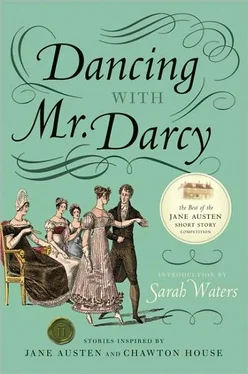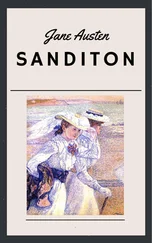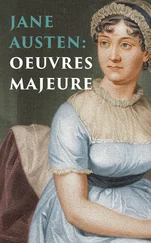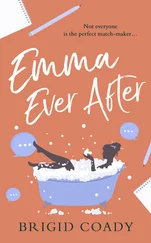Mrs Finch has been having ‘one-to-ones’ with each of us at the moment. One-to-ones are conversations just between her and one pupil, in private. It’s part of the preparation for us moving up to secondary school next year. I like Mrs Finch a lot; she reminds me of my Auntie Ruth. She’s quite large, like Auntie, and very jolly, with a big laugh that makes her face and boobies bounce up and down. But she can be very strict if she thinks we aren’t behaving properly. Everyone knows to keep quiet when Mrs Finch gets one of her moods on. But in the one-to-ones, she is really kind and empathetic. That means standing in our shoes and imagining the way we might be feeling. She said, ‘Are you nervous about going to Haydon Hill? I know I would be if I were you.’ But I’m not, not at all. I’m looking forward to doing new subjects and wearing the Haydon Hill uniform. And anyway, most of my friends are going too, so I don’t expect it will be that different there. Mrs Finch said a funny thing when we finished our chat, ‘At least you’ll never be at a loss for words, Laura,’ and gave a little laugh, so I laughed too to be polite and went to collect my coat and bag because it was home time by then.
I was going to call in at the library on my way home, because I knew I would finish Sense and Sensibility at the weekend and I was worried I wouldn’t have anything to read on Sunday. I want to read all Jane Austen’s books and I haven’t read Persuasion yet, but Granny didn’t have a copy of that. ‘Still enjoying Miss Austen, then, my pet, are you?’ she said last weekend when I rushed back to Sense and Sensibility after Sunday lunch and when I said yes, she smiled and whispered, ‘I think that’s her best book. Takes you to another place, doesn’t she?’ I knew what she meant. She’s taken me to loads of places already – Norland Park, London, Bath, Pemberley, Mansfield Park – so I was looking forward to my next adventure.
But when I came out of school, Mum was waiting at the gate, looking like someone had wiped all the colour off her face. She was peering all around as if she’d lost something, then she saw me and she gave a little cry and broke through the sea of bodies and grabbed me by the wrist. Her hands were icy cold, even though the day was warm. Her mouth was all wobbly and her voice sounded odd, like her tongue was swollen. ‘Mum?’ I said and my heart jumped in my chest, knocking all the breath out of me.
‘It’s Granny,’ said Mum. ‘She’s in hospital.’ And then we were in the car and Mum was driving in lurches through the traffic and when I looked at her, tears were dripping off her chin on to the front of her shirt. She tried to give me a smile as we pulled into the hospital car park, but it came out all wrong and then she was fumbling in her purse for change to buy a ticket. We ran up the side of the building hand in hand and into the entrance, which was glass and full of light like a cathedral. People were standing and sitting around as if they were waiting for someone to tell them what to do and then Mum was pushing me into a lift and stabbing the button for the fifth floor.
Granny looked very small in the bed. There was something funny about her face. Half of it looked like Granny and half like someone else’s face had been stuck on to it, and not very carefully at that. Mum took Granny’s hand, which was lying all knotted up on the sheet and stroked it. ‘Go on,’ she said, nodding her head towards Granny’s other hand, ‘hold her hand so she’ll know you’re here.’ It felt like tissue paper, all feathery and fragile, like it might tear if you rubbed too hard. ‘Dad’s on his way,’ said Mum. ‘And Auntie Ruth.’
I looked at Granny, at the tiny flicker of her eyelids, at the tears leaking out of the eye on the funny side, and I thought of all the things I wanted to tell her about. I wanted to tell her how happy I’d felt when Elinor realises Edward Ferrars really loves her. I thought about the way she always says, ‘Goodness me, the speed that child reads!’ as if she is a bit embarrassed and a bit proud at the same time. I thought about the day she stopped looking things up in the dictionary for me and pulled the spotty book down from the top of the bookcase and said, ‘There you go. That should keep you out of mischief for a while.’ I remembered the musty smell when I opened it for the first time and how tiny the words had been and how it was the first time I’d seen the word ‘ecstasy’ written down and how I told Granny it was my favourite word and she’d smiled.
A nurse came in and murmured something in Mum’s ear. Mum got up and whispered to me as if afraid she might wake Granny, ‘Dad’s on the phone. I won’t be long. Talk to Granny while I’m gone.’ I must have looked startled, because she leant towards me and said, ‘I know she looks like she’s asleep, but hearing’s the last thing to go.’ To go? To go where? And where had the first things gone? What were they? Mum hesitated in the doorway then rushed back to give me a really hard hug. ‘Don’t be frightened, sweetheart. It’s just that at the moment Granny’s in another place.’
The sun streamed in through the window, bathing Granny in a white light that almost hurt you to look at it. I sat forward on the hard plastic chair and opened my mouth to say something. I could feel my head buzzing with words, alive with them, but none of them would come out. I thought to myself, I must have thousands, millions of words in my brain, why can’t I find any of them? I thought about what Mrs Finch had said and how it wasn’t true. I had lost my words. And then I remembered my bag at my feet. I reached down and my hand closed around the book. I knew all about being in another place. I opened Granny’s favourite book at my bookmark and, in my best reading-aloud-in-class voice, but quietly so only she could hear, I began to read.
My inspiration: Our son is about to become a father. We were discussing the perfect ‘starter library’ for our grandchild and reminiscing about how and when we were introduced to certain books. I recalled first reading Jane Austen (and realising on rereading her years later how much I had missed!) and insisted she be included in our collection.
‘I had thought such ecstasy dead in me forever,
but the sun of Italy has thawed the frozen stream.’
Mary Shelley, ‘Rambles in Germany and Italy’, 1844
That winter, as snows fell on England and fires raged in Australia, as floods visited both countries, Miss Campbell became convinced the end was near.
She did not say so to neighbours or to people at the library, but the idea was not new to her. For months she had lived in fear of a plague. Scientists were on the alert for a new contagious disease. It was overdue. The next plague to hit would be rapid and deadly, they said. In deference to their opinions she filled two kitchen cupboards with tinned beans and bottled water, enough to survive a month without leaving her loft. She imagined her neighbours in the event of a quarantine. No ‘Blitz spirit’ for them: they’d be out looting the Tesco Express, the Boots, the Morrisons, even the all-night shop at the garage. When all obvious sources of food and medicine were exhausted, they would attack each other. Her only chance of survival would be to sit tight with her doors and windows locked.
But what form would this new plague take, Miss Campbell asked herself. The avian flu? Some sort of viral cancer? Perhaps, like the Black Death, it had sneaked in at the back door and was quietly multiplying as it fixed itself on the old, the weak and the young. Mr Shanahan, a regular at the library, had been hospitalised at Halloween for laser surgery on his eye. By Christmas he was gone. If she ever needed an operation she would choose day surgery; she did not wish to join the list of superbug victims.
Читать дальше












